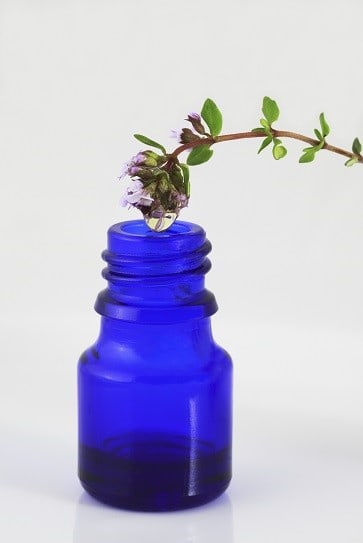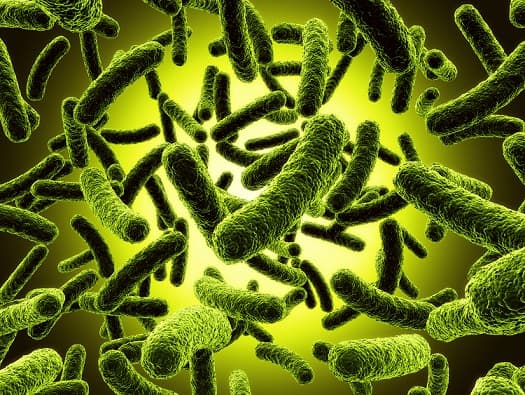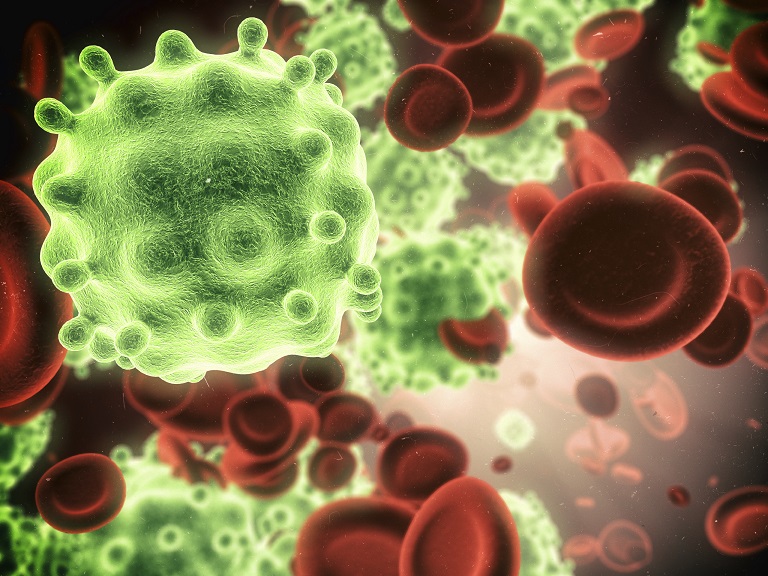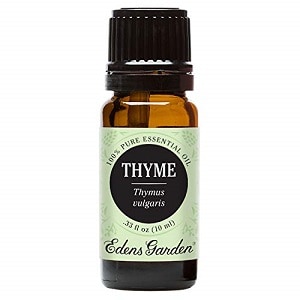 The herb thyme, most commonly used in pasta, has an extremely interesting medicinal history. In the European Middle Ages, people often placed thyme beneath pillows to improve sleep and ward off nightmares. During the Roman Empire’s peak, women would give thyme to knights and warriors, believing it to provide courage and strength.
The herb thyme, most commonly used in pasta, has an extremely interesting medicinal history. In the European Middle Ages, people often placed thyme beneath pillows to improve sleep and ward off nightmares. During the Roman Empire’s peak, women would give thyme to knights and warriors, believing it to provide courage and strength.
Thyme itself is derived from the Greek word “”thymus” for courage. Ancient Greeks used thyme in their baths and burnt it as an incense in their temples, believing it to be a source of courage when inhaled.
Over in India, ancient Ayurvedic medicine recommended thyme for its astringent, anti-microbial, antiseptic, antispasmodic (anti-muscle spasm) and anti-inflammatory properties.
The ancient Babylonian, Assyrian and Sumerian civilisations used thyme 5000 years ago, while the oldest Ancient Egyptian medical text, Ebers papyrus, recommended thyme for healing way back in 1550BC.
Lately, however, thyme oil has gained a new reputation: as a topical acne remedy. Nowadays, more and more people are being put off benzoyl peroxide by its strong side effects like inflammation and free radical creation. BP and other commercial washes don’t offer a long term solution, they only put a plaster on acne.
Hence, there’s currently a surge of interest in essential oils. Tea tree oil can wipe out p.acnes bacteria effectively, thanks to its active terpineol-4-ol compound.
Does thyme oil have compounds which kill p.acnes, soothe inflammation or clear acne in other hidden ways?
Thyme oil kills numerous bacteria species
 Our first study shows that thyme oil is an absolute juggernaut against our arch enemy acne bacteria. Some Chinese scientists tested ten different essential oils against bacteria: lavender, thyme, cinnamon, mint, lemon, grapefruit, jasmine, rose, chamomile, and ginger.
Our first study shows that thyme oil is an absolute juggernaut against our arch enemy acne bacteria. Some Chinese scientists tested ten different essential oils against bacteria: lavender, thyme, cinnamon, mint, lemon, grapefruit, jasmine, rose, chamomile, and ginger.
Cinnamon, rose, and thyme oil were the three most effective, killing p.acnes at only tiny concentrations; thyme oil was diluted to 0.016%, and cinnamon and rose oil to 0.016% and 0.031%.
Time taken to kill p.acnes was also tested, and thyme oil emerged victorious once again, alongside rose, cinnamon, and lavender.
In fact, 0.25% thyme oil killed every p.acnes cell in just five minutes. Most acne gurus recommend diluting thyme oil to 5% concentration.
Read Annihilate Your Acne – get the diet that could transform your skin!
Thyme oil was also most powerful against three different types of cancer cells. This study was almost entirely ignored back in 2010, but the results are extremely promising.
Up next is a press release from the University of Leeds entitled “thyme for a more natural cure for acne”. Thyme oil competed against myrrh and marigold oil, and while all three killed p.acnes bacteria after 5 minutes, thyme was easily the most effective. It even outstripped benzoyl peroxide, and caused nowhere near the same skin irritation. This press release gained a ton of media publicity when it was released back in 2013.
The benefits are clear. Propionibacterium acnes is the main acne bacteria; it triggers the inflammatory assault which creates pimples in the first place. Tea tree oil and blue light devices are also antibacterial legends, but thyme oil seems to be astonishingly effective.
There’s antibacterial evidence elsewhere too. In this study, both thyme oil and basil oil inhibited Shigella sonnei and Shigella flexneri, vicious food pathogens found in raw vegetables which lead to acute fever, acute abdominal cramping, nausea and diarrhoea after 1-7 days.
At 0.5% concentration, thyme oil reduced both shigella strains substantially. At 1% concentration, they fell below the detection limit. The scientists identified the two compounds responsible: thymol and carvacrol.
A similar study tested 8 essential oils on methicillin resistant staphylococcus aureus (MRSA). MRSA is a deadly hospital-based pathogen which kills 5000 people a year. The bacteria is carried on the skin or in nostrils, and enters the bodies of patients via skin punctures during operations. The problem? MRSA is now an antibiotic-resistant superbug…
…but thyme oil can kill it with ease. Only cinnamon oil was as effective, with thyme oil killing resistant MRSA within 60 minutes. MRSA is a member of the staphylococcus family, a secondary skin bacteria which can trigger inflammation and acne-related skin conditions like dermatitis and psoriasis. Thyme oil was found to inhibit a range of staphylococcus species.
Whether thyme oil actually clears acne remains to be seen. P.acnes is only one skin player among dozens. But thyme oil is proven to wipe out acne bacteria, and for that reason, it has promise.
Other compounds
Two of thyme oil’s active compounds, thymol and carvacrol, are also fascinating:
Thymol – the main medicinal compound of the thyme herb; hence its name. Thymol provides the distinctive flavour of thyme, with a strong aromatic odour. Numerous studies have analysed thymol individually, and its powers against antibiotic resistant yeast are supreme. It’s also theorised to end candida overgrowth, and is proven against two bacterial strains: Aeromoans hydrophila and Staphylococcus aureus (MRSA).
Thymol has been used in America against both hookworm and ringworm infections. It’s even an active ingredient of many mouthwashes, including Listerine. It’s the active antiseptic ingredient of some toothpastes like Euthymol. Thymol can thwart mould growth in bee colonies, and destroy the honeybee-killing varroa mite. Book and paper conservation is another speciality; wrapping up paper in bags lined with thymol crystals can suppress mould excellently.
Sea buckthorn oil – a natural secret for acne and oily skin
Carvacrol – the main active component in oregano, but thyme oil is also 5-75% carvacrol, depending on the species of plant. Carvacrol is noted for antimicrobial properties like killing candida and E.coli and preventing c.difficile bacteria from producing toxins. It’s believed to kill bacteria by binding to and disrupting their cell membranes.
Carvacrol can inhibit Pseudomonas aeruginosa, a kidney and urinary tract infecting bacteria which leads to death. Carvacrol also inhibits inflammation by lowering COX-2 activity, and has antioxidant activity. Interestingly, carvacrol creates the bitterness of herbs like oregano, by activating and then rapidly desensitising pain receptors on the tongue. It’s also used in tequila.
With two awesome compounds like that, it would be no surprise if thyme oil clears acne excellently.
Thyme oil – still an unverified acne treatment
 Thyme oil clearly has impressive powers, but there are no studies testing it directly on human acne patients. Internet testimonials are promising; one user reported zero pimples and “super happy and super soft skin” after two weeks of daily thyme oil application, compared to two a day when using BP.
Thyme oil clearly has impressive powers, but there are no studies testing it directly on human acne patients. Internet testimonials are promising; one user reported zero pimples and “super happy and super soft skin” after two weeks of daily thyme oil application, compared to two a day when using BP.
However, there’s a serious lack of depth; few acne patients are reporting their experiments with thyme oil yet. It’s far less documented than tea tree oil, where the endless reports have confirmed its power against acne, and particularly individual red and inflamed pimples.
Thyme oil clearly kills p.acnes, but that doesn’t automatically make it proven for acne. The antibacterial studies were conducted in a petri dish. Human skin is extremely complex; any prospective treatment has to penetrate its layers and pores deeply enough to kill p.acnes in its real hidey holes.
Next – the 6 best vitamins and minerals for naturally clear skin
Also, thyme oil blasts p.acnes into oblivion, but what if it blasts vitamin E into oblivion as well? That would be disastrous, since vitamin E is critical for preventing clogged pores.
Thyme oil could destroy delicate antioxidants like vitamin C and vitamin A, or resveratrol, or anything. Thyme oil could also kill the friendly bacteria making up your natural skin flora. P.acnes is the only charted territory.
Furthermore, remember the active compound thymol? It’s a double edged sword: a known eye, skin and respiratory irritant. It’s popular as a short-lived pesticide in some countries, so backfiring acne-inflaming powers wouldn’t be surprising. The Leeds University study noticed less skin irritation than from Benzoyl Peroxide, but tea tree oil is classic for sensitivities, causing red and painful rashes in some acne patients. The same could be true for thymol and thyme oil.
Neither the scientific research nor internet testimonials are deep enough to fully judge thyme oil…
…but on the other hand, thyme oil has also lowered inflammation numerous times. Carvacrol inhibits the inflammatory master messenger COX-2, and according to this study, this converts to thyme oil itself. A Japanese team of scientists tested thyme, clove, rose, eucalyptus, fennel, and bergamot oil. The other 5 oils lowered COX-2 by 25%, but thyme oil sneaked to 75%. As expected, carvacrol was responsible. Clearly, any inflammation from thymol was counteracted.
Also, thyme oil has been a wound-calming, hand-sanitising superstar for centuries now. India particularly adored it, thanks to Ayurvedic medicine. Inflammatory side effects would make wounds more irritated, not less.
The truth is probably similar to tea tree oil. Thyme oil has some mildly inflammatory compounds, which are balanced out by others, with a small subset of acne patients being hypersensitive to those compounds.
7 acne-clearing topical treatments which are 100% natural
Plus, our first study found that 0.25% thyme oil was enough to kill p.acnes. Diluting thyme oil slashes the risk of irritation, and at 5%, the currently accepted safe concentration is far higher.
Conclusion
Here’s the truth: thyme oil could easily cure acne. However, thyme oil could also backfire and redden and inflame your acne.
Overall though, I believe that thyme oil has big potential for reducing acne. Its properties are fascinating; it could emerge as a powerhouse of a topical treatment over the next 10 years. I won’t issue an official Supernatural Acne Treatment recommendation, but thyme oil could work wonders if you’re willing to experiment.
As for other essential oils, I would recommend tea tree oil first, since its effectiveness is far more documented. Other fantastic natural topical treatments include raw honey and grapeseed oil. Remember to dilute your thyme oil. Below 5% is optimal, but if this irritates your skin, lower concentrations will probably still work for acne. It will almost certainly be best for killing isolated pimples, rather than as a general toner…
…but again, you never know what benefits might spring up, because this topical treatment is an unexplored entity.
The best thyme oil product
 In our recent tea tree oil article, we discussed how checking the quality control, country of origin, bottle colour, etc are all unskippable steps. The good news with thyme oil is that good products are much simpler to find.
In our recent tea tree oil article, we discussed how checking the quality control, country of origin, bottle colour, etc are all unskippable steps. The good news with thyme oil is that good products are much simpler to find.
Dark bottles are vital with tea tree oil because this blocks sunlight from oxidising the terpinen-4-ol compound, which is very unstable. Thymol and carvacrol, meanwhile, are quite stable, and not prone to oxidation. Your tea tree oil should always be Australian, as that’s where the original plant hails from, but thyme grows all over the world these days.
The Thymus family also has over 300 different species (which itself belongs to the mint family of plants). Most internet bottles are sourced from thymus vulgaris, and contain the proper proportions of thymol and carvacrol. However, there’s one type you must avoid – red thyme oil.
This is a significantly less distilled and filtered version, with significantly more thymol and other compounds. This can make red thyme oil more powerful for acne, but it’s also more likely to cause irritation. You have to exercise far more caution. Since you have to dilute regular thyme oil anyway, there’s no need to buy red thyme oil and think you’re getting an acne clearing bonus.
If you’re going to try thyme oil, then Edens Garden (amazon link) is a well-reviewed product that ticks all of the acne-clearing boxes.
Also remember that topical treatments will never clear your skin alone. You have to cure acne from the inside out, not the outside in..
…and you don’t want to wake up each morning and be cursed to apply oil for hours and hours, time which you could be using productively. The ideal then, is to prevent acne and pimples from forming in the first place, and that’s completely achievable. You can 1) eat a nutritious diet free from inflammatory ingredients like sugar, and 2) live a healthy lifestyle with proper sun exposure, exercise, sleep quality and low stress levels.
I never recommend using topical treatments as your first acne-clearing weapon. That said – thyme oil could be fantastic if you’re looking for that extra edge.
NEXT: discover the root causes of acne and banish your pimples forever
Thanks for reading!

This article sounds like it was written by a higschooler.